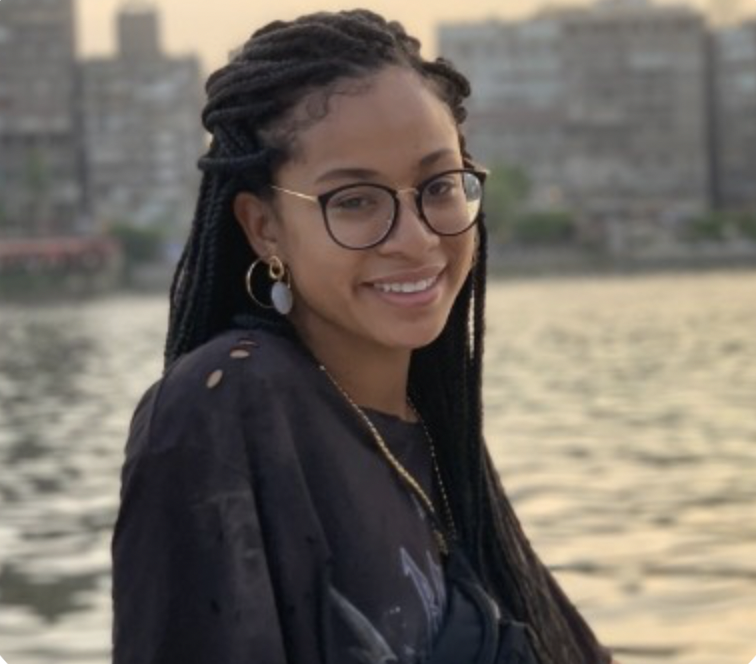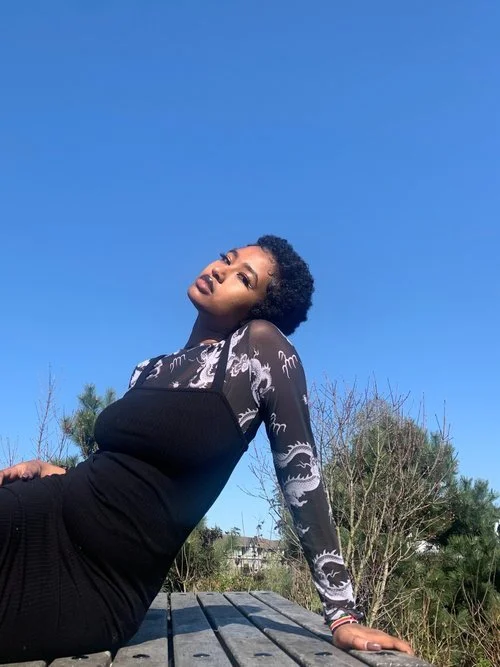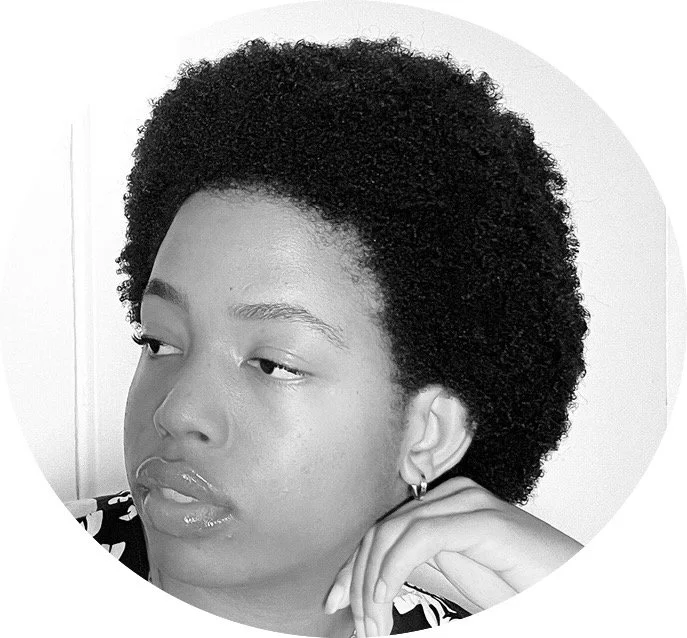The Black Arts Centre is bringing community to Metro Vancouver
Coinciding with Black History Month, the youth-run gallery is participating in the PuSh Festival for the first time, curating a Club PuSh event
Olumoroti George.
PuSh International Performing Arts Festival presents The Black Arts Centre @ Club PuSh on February 3 from 9 pm to 1 am at Club PuSh at Performance Works
Over the last few years, Vancouver has seen a rise in the number of organizations that provide opportunities for Black people to connect with each other and with other people of colour. There’s the Vancouver Black Library, for example, and Level Up, a monthly BIPOC-centred queer rap, hip hop, and R&B dance party. The Black Arts Centre (BLAC) is another.
What distinguishes BLAC is that it is focused entirely on Black art and artists.
Located at the Surrey Central Station, the youth-owned and -operated gallery and community site was born in 2020 out of a need to create more safe spaces for Black art to be celebrated, contemplated, and enjoyed.
Olumoroti George is BLAC’s creative director and curator. (He’s also curator at Gallery Gachet.) Originally from Lagos, Nigeria, George says he has always noticed a lack of Black representation in the local arts community since he first moved here several years ago.
“The state of Blackness here in Vancouver is quite precarious,” George tells Stir in an interview. “Part of our mandate is to [create] a space where Black futurity and community can thrive. Black artists have been creating since day one. They want to create and they have so much to say.”
In its first collaboration with PuSh Festival, BLAC is curating an event at Club PuSh. Taking place at the start of Black History Month, the February 3 evening will feature a DJ and will see the community come together to create a dance playlist that reflects the diaspora and Black plurality. Club PuSh is a spot where fest-goers can mingle, enjoy drinks, and take in performances in a relaxed, casual atmosphere.
The BLAC event is part of a Club PuSh series this weekend that also features Talking Stick (February 2, with a diverse lineup of Indigenous artists, and visuals to complement the propulsive music) and the frank theatre co. (February 4, with a cabaret featuring immigrant and queer artists of colour, following the company’s co-presentation of Soliloquio).
For the Club PuSh event, the Black Arts Centre has invited Vancouver-based DJ, artist, and community organizer Mada Phiri to perform a three-hour set. Like her artistic practice, Phiri’s DJ set acts as a testament to the plurality of Blackness and a monument to Black femme creatives whose artistic contributions are typically underappreciated and rendered invisible in their canons.
Mada Phiri.
“An emblematic aspect of Phiri’s DJ sets is her integration of popular Black music with elements from sonic elements from genres like techno, jungle, house, and EDM,” George explains. “The rationale behind integrating sounds in Phiri’s practice in the ever-growing movement led by Black DJs is to create a safe space for Black partygoers and music enthusiasts by combining familiar sounds with and unfamiliar sounds.
“Phiri’s DJ set also attempts to challenge her audience to think about what they quantify as ‘Black music’, especially in instances where genres developed and popularized by Black people grow to become popular in spaces that attempt to tokenize and exclude Black bodies,” George adds.
In keeping with BLAC’s mandate of community connection and fostering, the BLAC team has created a public Spotify playlist called “Black Bangers”, where members of the Black community in Vancouver will be encouraged to provide music recommendations that could be a part of Phiri’s DJ set during the Club PuSh event.
When asked to describe his overall approach to curation, George says he dabbles in the conceptual. “My curatorial voice is about using my knowledge and using my lived experience to conceptualize and showcase the work of BIPOC artists through an ethical, knowledgeable, and pedagogical framework,” George says, adding that the Black body is “an ongoing site of resistance”.
After the murder of George Floyd in 2020, George adds, there was a “lack of space to mourn”. “A lot of Black people felt overwhelmed,” he says. This was one of the reasons the Black Arts Centre was started—to be “a space where Black joy can be celebrated but also for mourning. Given the creative diversity of the team, the centre is trying to reflect the multiple ways Black artists create and bond in the world through the space itself,” George says.
Arshi Chadha.
Arshi Chadha is another director at the Black Arts Centre. The video and performance artist handles programming and social media for the centre. She discovered the centre while still a high school student at the very beginning of its establishment in 2020. Chadha credits the centre for her growth as a young filmmaker; it was the first place that gave her a chance to hone her creative skill. “I wouldn’t see a future in arts without them,” Chadha says.
Prior to connecting with the centre, Chadha says she felt something missing in her film practice, like she was “making art for a lens that was not mine”. She did her best to build community while in school, but she faced many barriers, feeling “traumatized by the brutalization of Black people” that fills the news every day. At BLAC, however, she has been able to network and surround herself with artists who look like her. “Being around Black people has been very healing for me,” she says.
Chadha is also getting the chance to explore the field of curation by working alongside George. Chadha believes that Black people, especially youth, deserve to have a “safe space” where they “are given messaging of empowerment and love”—it’s the kind of place she needed when she was younger but couldn’t find, she says.
BLAC leases out its space to organizations such as the Daily Dose of Blackness, which celebrates Black youth, and the African Ancestry Project. The centre also offers a directory of Black artists. Its overarching aim is simple: It’s all about building community.
"In the coming months, the BLAC team hopes to become a safe space for community and artistic development in Vancouver," George says. "The BLAC team hopes to do so by hosting artists’ residencies, screening events, and workshops and providing professional development opportunities for Black youths in Vancouver. The BLAC team recognizes that it takes a village for any organization to reach its full potential, which is why for Black history month, the Black team has created a community ask to allow allies and other members of the Black community in Vancouver to invest in Black artistic futurity in the city through the Black Arts Centre."
















